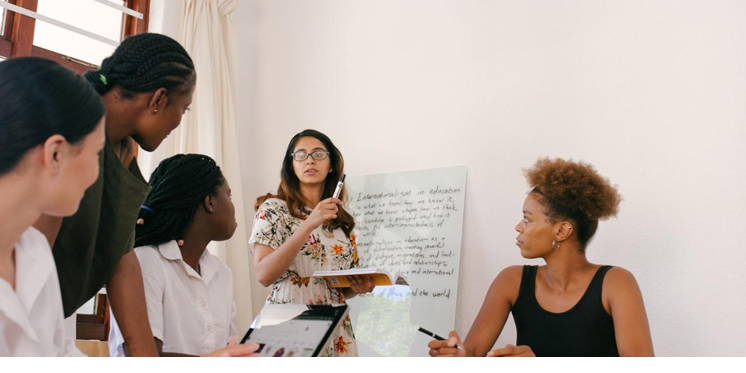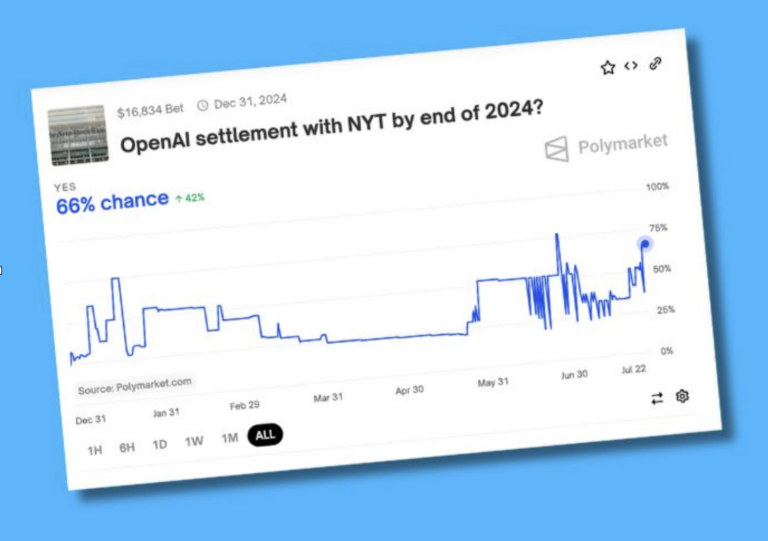7 tips to improve your business mindset and manage a sustainable media outlet
Source: International Journalists Network
By CRISTINA TARDÁGUILA
One day in 2016, when Spanish journalists Clara Jiménez and Julio Montes decided to launch Maldita.es, they invited a couple of friends, plugged in three laptops around a small wooden table, cracked open some beers and thought about what they could do. to fight the rampant waves of misinformation and disinformation.
At about the same time, in Turkey, Gülin Çavuş , who had just graduated in global politics and international relations, with a specialization in urban planning and local government, was also increasingly concerned about the impact of misinformation on social media and messaging apps. He decided to launch Teyit , a fact-checking operation first conceptualized by his friend, Mehmet Atakan Foça .
Six years later, by early 2022, Maldita had grown to more than 50 employees. Jimenez was having trouble sleeping because of all the responsibilities and business decisions at hand. She would lie, she said, next to Montes, now her husband, and, facing the white ceiling, they would wonder whether Maldita would survive to make ends meet.
Çavuş, in her part of the world, had witnessed a coup attempt and experienced the rise of extreme political polarization in recent years. One of her tasks as Teyit's new head of strategy was to diversify the organization's sources of income, ensuring that dozens of staff members and several freelancers received the salaries they deserved.
In June, in Seoul, South Korea, at Global Fact 10, an annual conference organized by the International Fact Check Network, Jimenez and Çavuş shared with a select group of journalists how their lives-and their businesses-had changed in the past few months. months.
Jimenez and Çavuş, successful and creative women, had participated in Elevate, ICFJ's news business center. They talked about the lessons they learned during the program and the changes they implemented in their organizations with the support of international mentors.
If you are struggling to manage a media outlet or if you know someone who fits this description, be sure to review and share the following tips.
Tip 1, from Çavuş: Be humble. Recognize that you don't have all the skills you need to run a business. Ask for help.
Journalism schools don't often offer business classes or teach how to create budgets. They rarely address human resources or technology infrastructure. All of these topics, however, are vital for journalists seeking to become entrepreneurs and media executives at the helm of sustainable news operations.
"Make sure you recognize what you don't know," Çavuş said, with a humble smile. "After that, get in touch with Elevate or any other support you can find and make sure you dedicate yourself to learning."
Teyit won $20,000 and developed a new customer relationship management (CRM) system to help interact with his audience.
Tip 2, from Jimenez: Share responsibilities and empower a trusted team.
An organization the size of Maldita should consider having several C-level professionals: a chief executive officer (CEO), chief technology officer (CTO), chief financial officer (CFO) and chief operating officer (COO). Each position should have a clear job description, with annual objectives.
"Maldita went from having two directors - Julio and I, who all the time would just talk about work and start fighting at home - to a team of five directors," Jimenez said. "The founders of the organization, in this case Julio and I, also need to empower these directors, so the rest of the team knows where to go to fix something that's not right."
Tip 3, from Jimenez: Develop a strategic plan that details what the future of your organization should look like.
Prior to a planning retreat Jimenez organized in 2022, Maldita's media literacy team was committed to working with seniors but spent time with high school students. Maldita's newsroom was publishing "long, super-complicated" articles. Botalite, Maldita's technology arm, was on the horizon but didn't yet have a clear path.
The retreat, which brought together the organization's leaders, presented an opportunity to refocus some of these priorities, review processes and update goals. The team documented everything on paper.
"We rented a rural house and I made pizza for everyone while we divided into groups and built different parts of our strategic plan," he said. "Our document covers eight areas and is our guide."
Tip 4, from Jimenez: Write down your mission and vision. Be sure to communicate them to your employees.
With the support of Elevate mentor Edmour Saiani , the Maldita team wrote what they call their "10 + 1 commandments."
"We grew very quickly," Jimenez explained. "Those of us who have been there since the beginning understand Maldita quite well and have a special attachment to it. However, new employees are very likely to see our newsroom as their new job. The commandments were created to explain our culture internally - who we are, what we do, and how we do things.
Saiani also asked Maldita staff members to write down what they liked and disliked about the medium and identified common responses. This is a useful exercise for any C-level media executive.
Tip 5, from Jimenez: Learn to let people go and embrace it.
Hiring and firing are critical skills in all organizations, whether for-profit or not-for-profit. Journalists, however, hardly know how to navigate these areas, especially when it comes to layoffs.
"At Elevate, I understood that letting people go can be really good for both parties, and I had the opportunity to develop that skill," Jimenez said. "As a leader, you can be nice and realistic at the same time. You have to get your message across and make the person you're letting go understand that this will also be an important time for their growth."
Tip 6, from Çavuş: Devise as many strategies as you can, but be prepared for the unexpected.
In February, while Teyit was carefully reviewing and categorizing its audience to find out who its "loyal readers" were, Turkey suffered a massive earthquake. Çavuş had to divert his media outlet's attention to reporting on thousands of deaths and debunking false narratives.
Teyit suspended its work around CRM, but that was okay: prioritization is a key skill for leaders.
The media produced brilliant coverage of the devastating natural disaster that they could be proud of and has a solid project born out of stakeholder categorization - Teyit Press. Soon, as part of this project, the media outlet will begin training Turkish newsrooms on how to better deal with misinformation and disinformation.
In short, Teyit has arrived.
Tip 7, from Jimenez: Don't be shy. Promote your business wherever you go.
Always carry an informational brochure about your organization on your phone. Are you presenting at a conference? Be sure to add a QR code and/or a link to your organization. Bring business cards; use these events to build networks.
Jimenez and Çavuş did both throughout Global Fact 10 and will surely reap the benefits soon.






